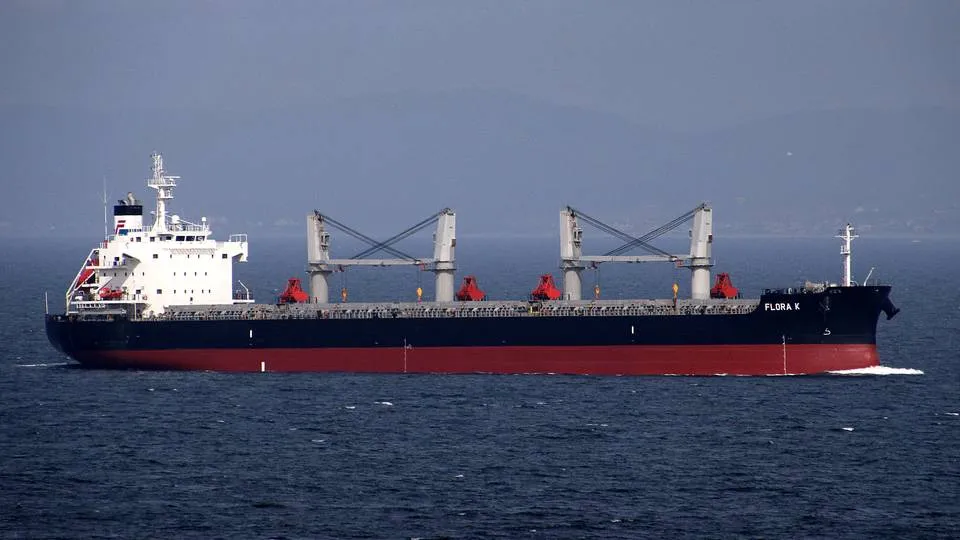Dry bulk company Falcon demands damages from World Fuel Services in a case regarding a fuel delivery to a chartered vessel last year, which exceeded the IMO’s sulfur limit. “We are disappointed and feel very poorly treated by World Fuel Services in this case,” Falcon tells WPO.

Falcon demands compensation from World Fuel Service for an off-spec fuel delivery. The picture is unrelated to the ongoing case. | Photo: Falcon Maritime
Dry bulk shipping company Falcon has sued bunker supplier World Fuel Services for a low-sulfur bunker delivery to a vessel under time charter at the Danish shipping company last year.
Falcon has raised claims related to losses and potential costs “in excess of USD 500,000”, reveals the complaint filed with a US court through subsidiary Falcon Navigation.
We are disappointed and feel very poorly treated by World Fuel Services in this case
Bo Kristensen, CEO, Falcon
The compensation covers, among other things, claims instituted against Falcon by the “disponent owner” of the vessel through an arbitration case in London.
According to Falcon, World Fuel Services was in breach of the parties’ contract and is thus responsible for covering the losses incurred as a result of the off-spec fuel delivery – that is, fuel that did not comply with the agreed upon specification.
“Defendant’s breach of the contract caused damage to Falcon, including the costs of litigation and arbitration, and rendered Falcon potentially liable for the amounts sought by Disponent Owner for damages,” states the complaint issued on March 23 this year.
“Falcon is therefore entitled to be indemnified by WFS for damages, including attorney’s fees.”
Falcon confirms the case to WPO.
“We are disappointed and feel very poorly treated by World Fuel Services in this case,” writes CEO Bo Kristensen in a comment to WPO.
“They have refused to test the fuel at all, even though we were met by the disponent owner with a clear refusal to use the fuel with reference to the sulfur regulations in MARPOL. We have yet to receive World Fuel Services’ response to the complaint,” he writes.
WPO has tried to obtain a comment from World Fuel Services, but the company has not returned the inquiry.
Exceeded the sulfur limit
The case concerns a delivery of low-sulfur bunker oil (VLSFO) for a vessel on time charter at Falcon last year from company W.L. Shipping.
As part of the agreement, Falcon was to provide and pay for fuel for the vessel, a service Falcon ordered from World Fuel Services through an agent.
A subsequent test of the fuel, however, revealed a sulfur content of 0.53 percent, which exceeds the 0.5 percent limit set out by the IMO’s sulfur directive. As a result of this, W.L. Shipping demanded that Falcon de-bunker the off-spec fuel and refuel it with new, low-sulfur bunker oil.
The complaint states that Falcon reached out to World Fuel Services and asked that a test of the source of the supplied fuel be carried out through a so-called barge sample.
A request that World Fuel Services, according to Falcon, declined.
When Falcon returned the vessel upon the end of the charter contract in October, a new test of the fuel in the tank was carried out. Once again, the sulfur content was too high at 0.5597 percent. Here, too, according to the complaint, Falcon reached out to World Fuel Services, which refused to test the source of the fuel once again.
Following the delivery, W.L. Shipping arranged for the debunkering of the fuel from the vessel. The company subsequently raised a claim against Falcon and initiated an arbitration case in London against the Danish company regarding the “non-contractual” fuel and payment for costs associated with new fuel, de-bunkering and “other losses.”
Following a five-year profit streak, Falcon’s bottom line ended in the red in 2020, with a DKK 8.4 million (USD 1.3 million) deficit against a DKK 8.6 million profit in 2019.





